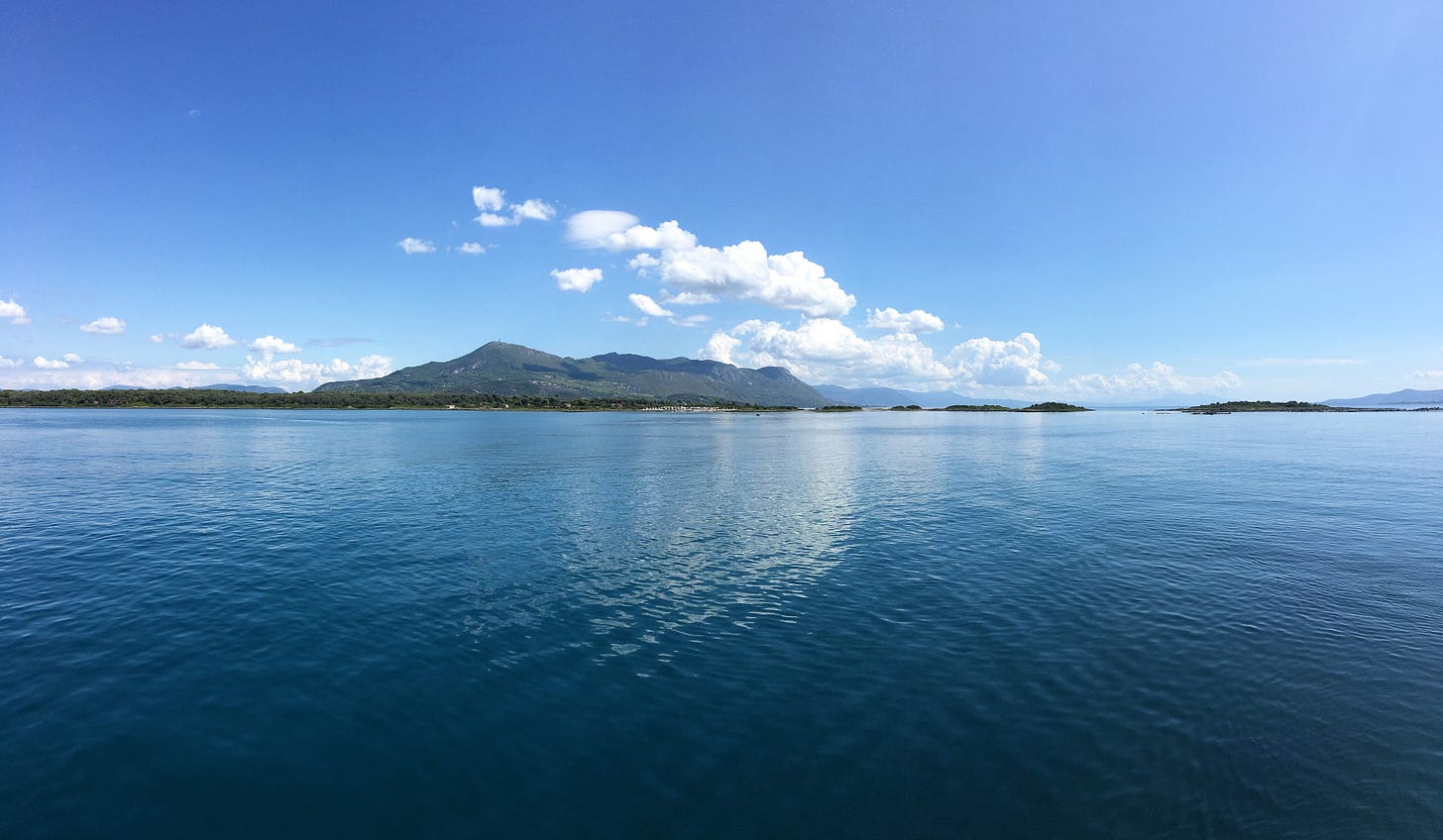Beneath the Sea Surface: The Mediterranean Heated Summer and What It Means for Us All
25 April 2025
Each year, many of us dream about Mediterranean summer escapes— blue waters, sun-soaked beaches, gentle waves. But beneath those glittering surfaces, a storm is brewing. Quite literally.
Covering around 70% of our planet, the ocean is Earth’s great heat bank, absorbing so far around 90% of the excess heat generated by human-caused greenhouse gas emissions. But this protective buffer has come at a price. Our oceans are overheating, and the Mediterranean is sounding the most urgent warning.
In 2024, the Mediterranean Sea recorded its warmest year in history, with average sea surface temperatures (SSTs) hitting 21.5°C—a full 1.2°C above average and slightly higher than the previous record set in 2023. In August, waters between Nice, Corsica, and the Gulf of Genoa reached to up 5°C above the 1991–2020 average.
These aren’t just numbers—they’re ecological alarm bells. Sea surface temperatures are key indicators of the dynamic interactions between the ocean and the atmosphere. When these temperatures rise, they transform marine biodiversity, amplify the frequency and intensity of storms, trigger extreme precipitation events and reshape global climate.
Marine heatwaves, prolonged periods of unusually high ocean temperatures, are increasing in frequency and severity. Since the 1980s, the Mediterranean has warmed by an average of 0.4°C per decade, making it one of the world’s fastest-warming seas. If this trajectory continues, marine heatwaves will become the norm, not the exception.
And, these events aren’t t just theoretical threats. They have consequences. Due to its enclosed nature, the Mediterranean Sea has an enormously rich native biodiversity, yet it’s also the world’s most invaded marine ecosystem. Warmer water has supercharged this invade, allowing an influx of invasive species to thrive at the expense of the native Mediterranean marine life.
Other ecological impacts include mass mortality events in species like gorgonian corals, sponges, and seagrasses which have already suffered extensive die-offs, disrupted marine food webs and undermined marine biodiversity. Warmer waters also reduce oxygen solubility in seawater, leading to hypoxic “dead zones” where fish and invertebrates struggle to survive.
There are socioeconomic consequences as well. In northern Greece, mussel farms faced a 90% collapse in harvests as sea temperatures exceeding 30°C, threatening the livelihoods of local communities.
Warmer seas don’t just stay underwater; they influence weather above as well. High sea surface temperatures in the Mediterranean have been linked to more intense storms and rainfall. In 2003 Storm Daniel, intensified by warm waters, devastated parts of the Mediterranean region. In 2024, Storm Boris brought flooding across central and eastern Europe and submerged parts of Spain’s Valencia region, again, with the Mediterranean’s overheated waters playing a likely role.
The Mediterranean’s story is a stark reminder of the interconnectedness of climate, ecology, and humanity. Addressing these challenges requires urgent action. Expanding offshore drilling for fossil fuels locks countries into decades of carbon dependency, and accelerates the damage. We should instead invest in marine protected areas, strengthening sustainable industries and cutting drastically greenhouse emissions at the source.
After all, what happens beneath the waves doesn’t stay there. It rises to our shores, changes our weather, and touches every aspect of our lives. The Mediterranean’s story is not just about the sea and the marine life—it’s about us.
Sources:
Ocean Warming | Vital Signs – Climate Change: Vital Signs of the Planet
New literature review on Mediterranean marine heatwaves | Poseidon System
Frontiers | Evolution of marine heatwaves in warming seas: the Mediterranean Sea case study
‘Anything can be edible’: how Italians are making a meal of invasive crabs | Seafood | The Guardian
Argüeso, D., Marcos, M. & Amores, A. Storm Daniel fueled by anomalously high sea surface temperatures in the Mediterranean. npj Clim Atmos Sci 7, 307 (2024). https://doi.org/10.1038/s41612-024-00872-2
https://www.ecmwf.int/en/newsletter/182/news/severe-rain-central-europe-storm-boris
Climate crisis fuelled storm that sank yacht in Sicily, say experts | Extreme weather | The Guardian





